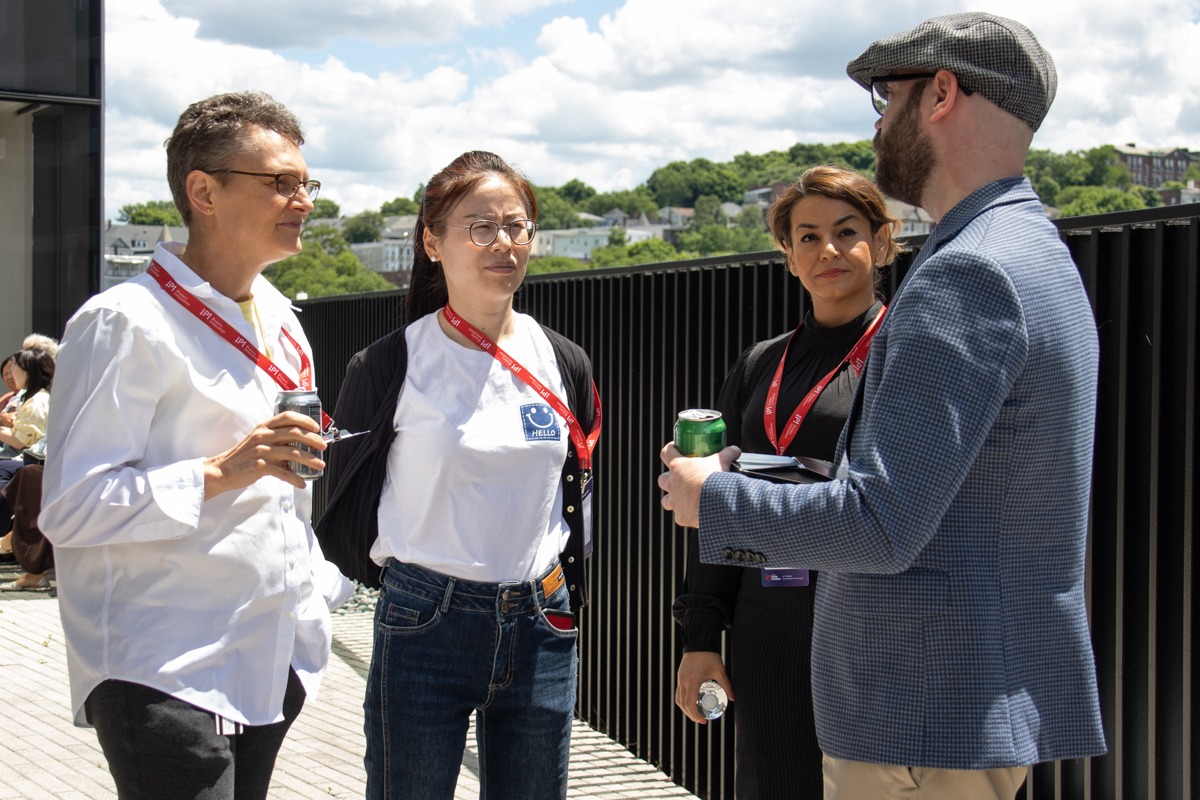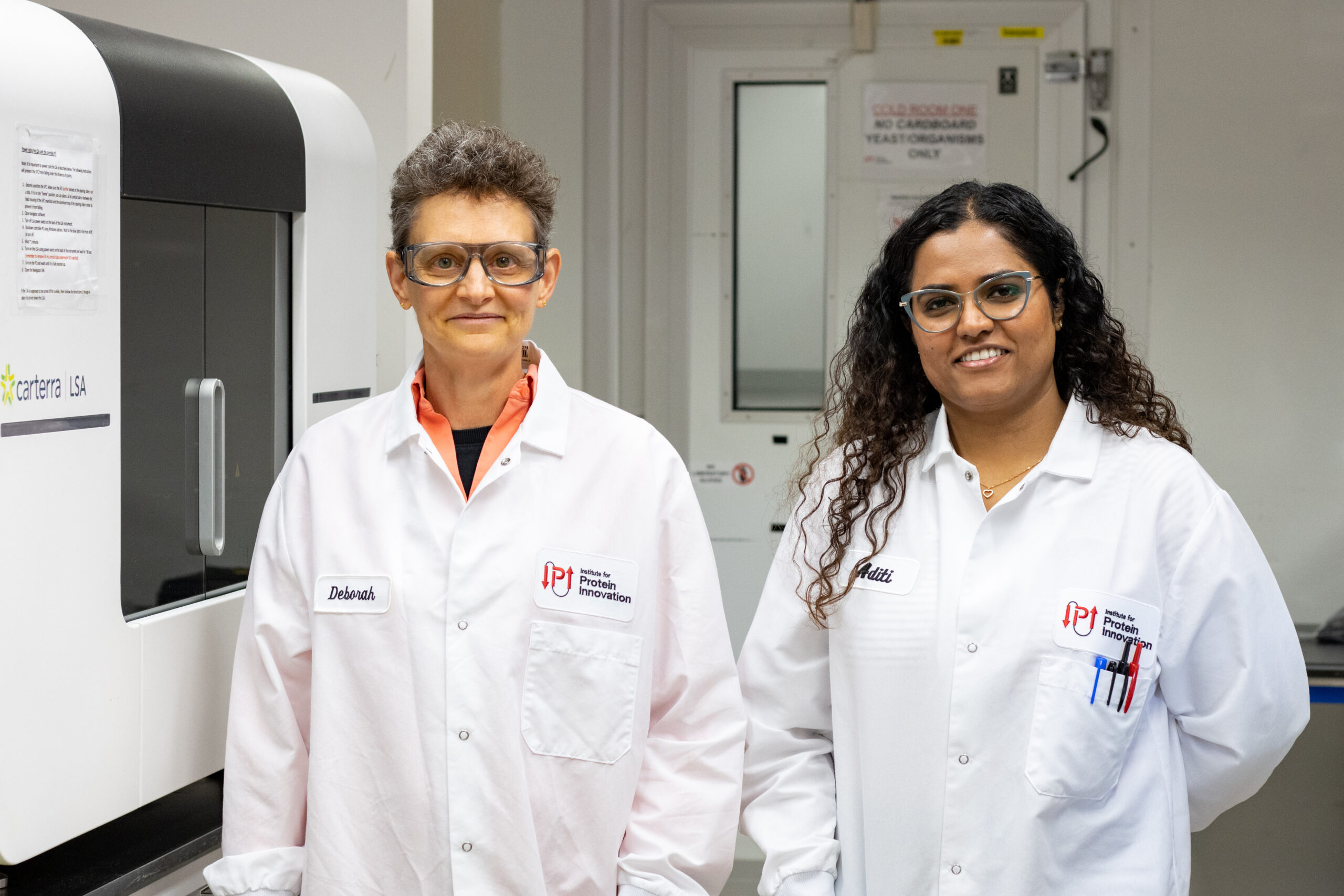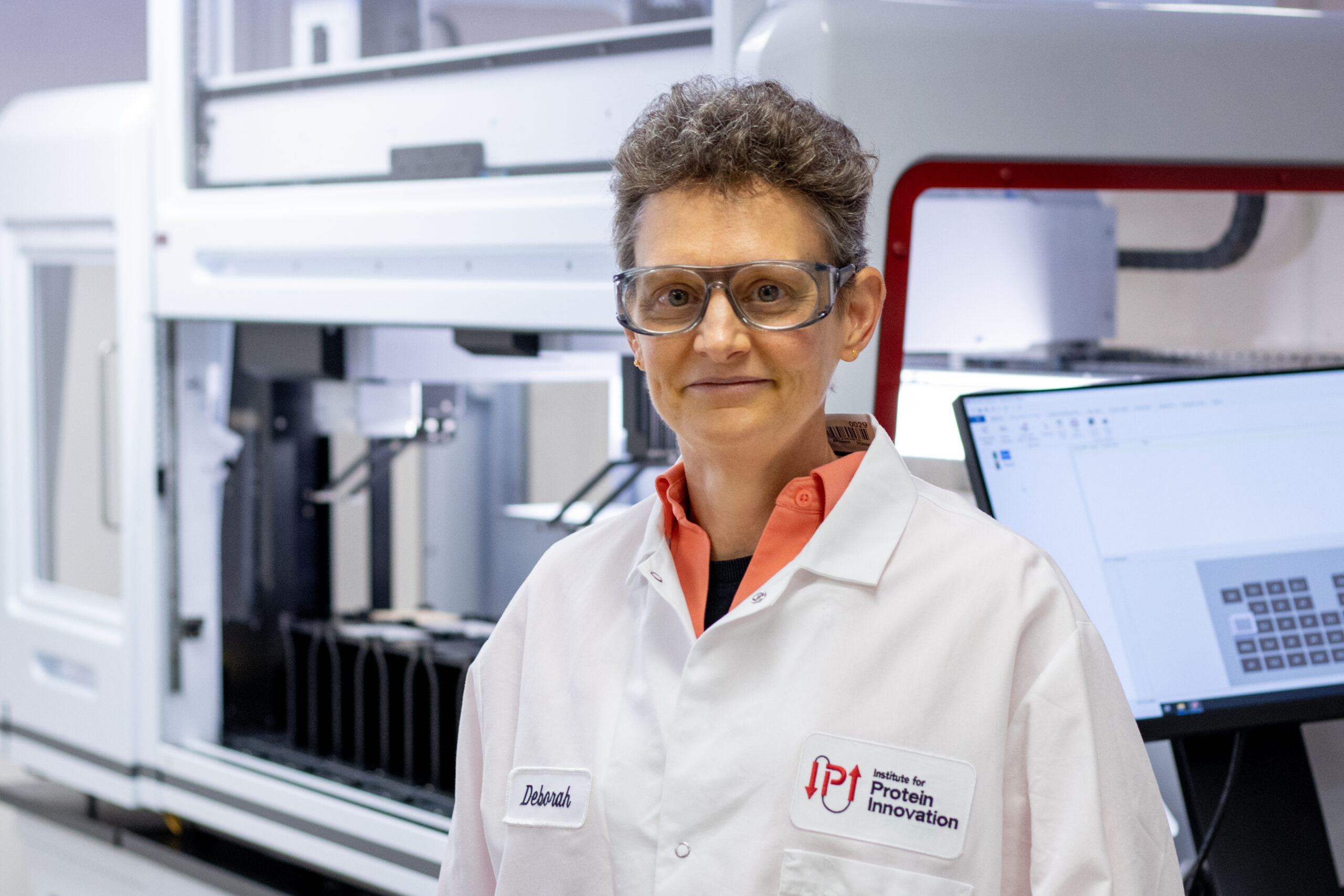Deborah “Deb” Moshinsky is the type of process-motivated scientist that all labs require — but few are lucky to find.
As the Director of Characterization and Validation at the Institute for Protein Innovation (IPI), she is the quality control gatekeeper, who ultimately bears responsibility for delivering reliable, reproducible antibody reagents to researchers worldwide.
She works behind the scenes, first understanding the ins and outs of antigen and antibody production and high-throughput technologies. Then, she amalgamates this knowledge into assays and criteria that set the bar for what is a “good” antibody. All IPI antibodies must reach that standard. And that takes planning.
“So many things fail at the end of the day because they weren’t established properly,” she says. “I like the challenge of combining scientific assays with getting processes into place. That’s what really motivates me.”
Since her arrival at IPI at the start of 2024, she’s brought a new thinking on board, one that involves a standardization system for IPI antibodies that represents — and possibly predicts — how they will behave in laboratories outside IPI.
Pioneering kinase inhibitors
Initially, Moshinsky didn’t think much about this detail-driven, tech-forward side of protein production.
When she entered Immaculata University as an undergraduate, she thought becoming a doctor was the vocation ordained by her biological interests. But at the small all-girls college near Philadelphia, she found herself continually drawn to another calling: the fundamental processes that facilitate drug discovery.

She majored in chemistry with a minor in biology and secured a Ph.D. at the Massachusetts Institute of Technology, working with the renowned biochemist Gerald Wogan on DNA mutagenesis. In her fifth year, she took part in a three-month industrial internship program at SUGEN, Inc. Impressed by her work, the San Francisco startup hired Moshinsky directly after graduation, throwing her into the race to translate protein kinase inhibitors into oncology drugs.
At the time, the specificity of kinase inhibitors was still undetermined and the field undeveloped.
“It was really exciting,” she says. “I jumped right into high-throughput screening.”
Her project yielded hits, demonstrating small molecule kinase inhibitors could be selective. Unfortunately, a Pfizer takeover closed SUGEN in 2003. However, Moshinsky’s work had already helped lay the foundation for future kinase inhibitor drugs, including sunitinib (Sutent), which gained FDA approval in 2006 for the treatment of renal cell carcinoma and imatinib-resistant gastrointestinal stromal tumor.
Pfizer recognized both the potential of these drugs and the value of Moshinsky’s leadership, hiring her in 2004 to head kinase selectivity screening. She immediately found herself facing an enormous challenge: the kinase program required simultaneously running a panel of 50 different kinase assays for thousands of targets. She did the math.
“It broke all the existing data analysis systems and automation,” she says. “We had to really build (a new system) from the ground up.”
Moshinsky and an informatics specialist created a complex data matrix and, within a year, built a vast screening behemoth used by multiple groups at Pfizer. Despite the success, however, Pfizer shifted its focus over the next five years to siRNA therapeutic research. Moshinsky wanted to stay with kinase inhibitors — so she started her own company.
A cell-based self-starter
In 2011, she and a like-minded scientist Liping Wu launched Cell Assay Innovations to continue testing kinase inhibitors and developing cell-based assay technologies. The founders bootstrapped their initial investments, receiving seed funding from family and friends. They found lab space in a shared facility in Beverly, Massachusetts, teaming up with small biotech incubator North Shore InnoVentures. When Deb’s former Pfizer site shuttered, they bought up the supplies and carted three carloads of consumables to their new lab space.
“Once I had the idea that I wanted to start this company, I was so driven I couldn’t be talked out of it,” she says.
That internal drive carried Moshinsky for the next 10 years. She handled quality control, product preparation and customer service, while Wu took on much of the benchwork. The boutique contract research organization became known for the ClariCELL™ assay, which allowed researchers to exploit kinase activity to measure protein substrate- or auto-phosphorylation in a high-throughput format.
In 2021, Moshinsky closed the company to pursue another path. One of Cell Assays’ long-term clients, Prestige Biopharma, needed an internal group to develop neutralizing antibody assays. Moshinsky and Wu fit in, moving from small molecules to antibodies.
At Prestige, the two learned quite a bit about the complexity of biologics and rigorousness of antibody consumers. A drug or diagnostic antibody needs to work safely and precisely in the body. A reagent antibody must work in the exact application, conditions and restrictions of every laboratory that tries it.
Embracing antibodies
That understanding made Moshinsky incredibly attractive to IPI, which recruited her three years later. The Institute was expanding antibody production and beginning to distribute its products, searching for an expert who could scale proof of quality, performance and reliability.
Moshinsky proved a perfect fit, demonstrating a rare depth of knowledge in protein production, biophysical characterization and application development — and a no-stone-left-unturned approach to quality control.

“When you start looking at complex systems, sometimes you see what you want to see,” she says. “It’s important to take things in a stage-wise manner and be very careful about your interpretation.”
In the past year, Moshinsky’s prime focus and achievement has been creating a new approach to standardization. Where antibodies are concerned, one size does fit not all. That complex and difficult-to-capture specificity has confounded many a reagent antibody manufacturer.
With the help of automation director Curtis Walton, Moshinsky’s team has implemented a suite of simplified, automated assays, including cell display, immunofluorescence and western blotting. It gives reasonable assessments of future antibody performance in customers’ and collaborators’ hands.
As more systems — including ELISA, immunoprecipitation and, eventually, immunohistochemistry — come online, the team will turn its attention to more innovative applications, perhaps in multiplex imaging and the broader imaging arena.
In this way, Moshinsky feels that she, and IPI, can make an impact.
“I’d like to see IPI’s influence in the community grow and grow over the years,” she says, “which I’m sure it will.”
Source: Deb Moshinsky, deborah.moshinsky@proteininnovation.org
Writer: Caitlin Faulds, caitlin.faulds@proteininnovation.org
About IPI
The Institute for Protein Innovation is pioneering a new approach to scientific discovery and collaboration. As a nonprofit research institute, we provide the biomedical research community with synthetic antibodies and deep protein expertise, empowering scientists to explore fundamental biological processes and pinpoint new targets for therapeutic development. Our mission is to advance protein science to accelerate research and improve human health. For more information, visit proteininnovation.org or follow us on social media, @ipiproteins.


